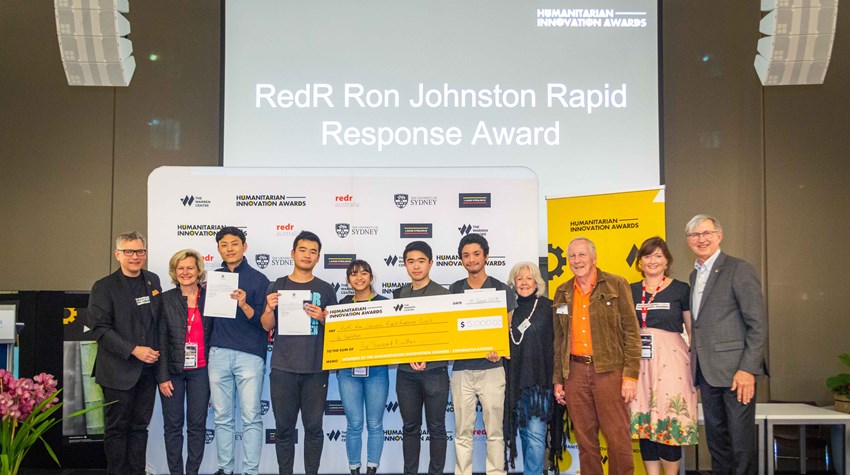The Professor Ron Johnston Humanitarian Innovation Hackathon brought together 60 undergraduate students from across 10 Australian universities, to work in teams to generate technology-driven solutions to current humanitarian problems.
In the lead up to the event, RedR Australia worked with The Warren Centre to select Cox’s Bazar as the humanitarian context for the event – where more than 900,000 Rohingya refugees have fled escaping escalating violence in Rakhine State, Myanmar.
Several of our roster members and staff provided technical guidance to The Warren Centre’s hackathon team to develop the challenge questions, which were based on real-life problems faced by the sector in Cox’s Bazar over the past two years. This included questions around monsoonal flooding, beetle-infested bamboo shelters, managing elephant migration, and reducing the risk of gender-based violence.
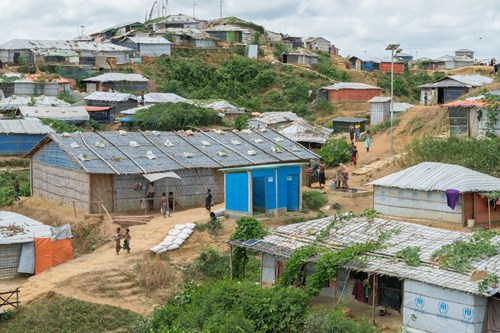
The Cox's Bazar settlement in Bangladesh, which was the humanitarian context in which the Hackathon was set. Photo credit: Patrick Shepherd, RedR Australia
RedR Australia CEO Kirsten Sayers opened the Friday night event, setting the scene of Cox’s Bazar for students, and explaining that each team’s solution must address gender and protection concerns to be in the running to win, in line with RedR Australia’s own gender and disability inclusion strategies.
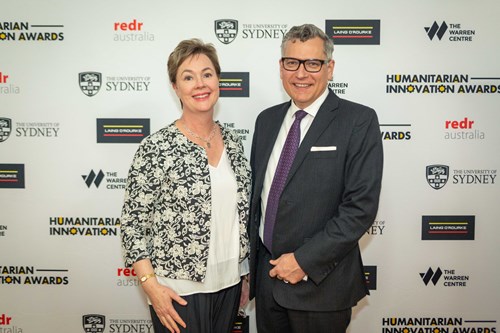
RedR Australia CEO Kirsten Sayers with The Warren Centre Executive Director Ashley Brinson at the Hackathon's welcome event. Photo credit: The Warren Centre
Throughout the weekend, RedR Australia had six humanitarian mentors on-hand to assist students to develop solutions that were both implementable in the field and inclusive, including RedR Australia’s Strategy, Risk and Partnerships Director Drasko Kraguljac, and corporate partner Arup.
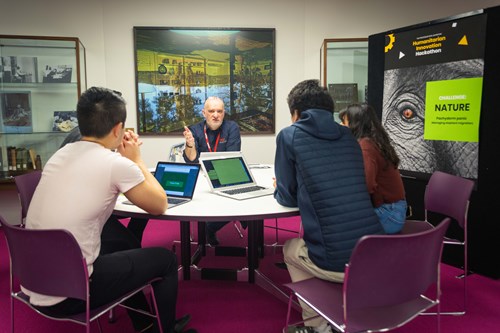
Students during a mentoring session with RedR Australia humanitarian mentor Drasko Kraguljac. Photo credit: The Warren Centre
The weekend culminated in a pitch event on the Sunday afternoon, where students presented their solutions to a panel of five judges, including RedR Australia’s Board Chair Elizabeth Taylor AO, who was chief judge.
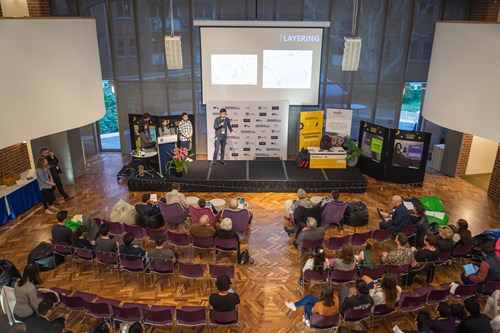
The pitch event at the Humanitarian Innovation Hackathon. Photo credit: The Warren Centre
The winning pitch was in response to managing elephant migration in Cox’s Bazar, a problem faced in the camps in the early phase of the response. The team proposed the use of bees to guide elephants away from camps located in their traditional migration routes.
“The solutions generated by the students were incredibly innovative and creative. I was impressed by both the teamwork and technical skills displayed by the students to generate pitches of such complexity in just 48 hours,” said Elizabeth.
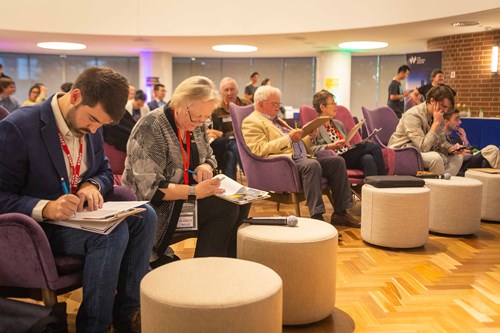
Chair of the RedR Australia Board Elizabeth Taylor AO was chief judge of the panel. Photo credit: The Warren Centre
RedR Australia has since passed on the winning solutions to the relevant humanitarian specialists in Cox’s Bazar, to assess if any of the designs could potentially be utilised in the field.
“We are delighted to have had the opportunity to partner with The Warren Centre and bring to life the Humanitarian Innovation Hackathon,” said Elizabeth.
“It has been our privilege to introduce young minds to the work of the humanitarian sector, and hear the ideas they have to solve some of the most pressing issues we have seen in Cox’s Bazar."

